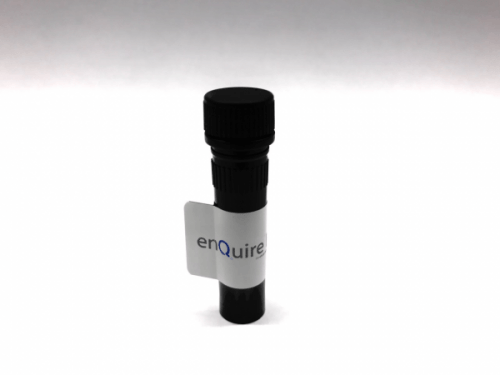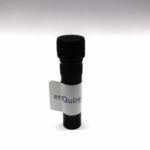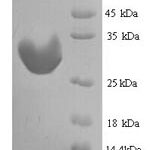Human Anti-IGFBP1 Antibody Product Attributes
IGFBP1 Previously Observed Antibody Staining Patterns
Observed Subcellular, Organelle Specific Staining Data:
Anti-IGFBP1 antibody staining is expected to be primarily localized to the golgi apparatus. There is variability in either the signal strength or the localization of signal in golgi apparatus from cell to cell.
Observed Antibody Staining Data By Tissue Type:
Variations in IGFBP1 antibody staining intensity in immunohistochemistry on tissue sections are present across different anatomical locations. An intense signal was observed in decidual cells in the placenta. More moderate antibody staining intensity was present in decidual cells in the placenta. Low, but measureable presence of IGFBP1 could be seen in. We were unable to detect IGFBP1 in other tissues. Disease states, inflammation, and other physiological changes can have a substantial impact on antibody staining patterns. These measurements were all taken in tissues deemed normal or from patients without known disease.
| IGFBP1 General Information | |
|---|---|
| Alternate Names | |
| IGFBP1, EGK_13713 | |
| Curated Database and Bioinformatic Data | |
| Gene Symbol | IGFBP1 |
| Entrez Gene ID | 696994 |
| Ensemble Gene ID | ENSMMUG00000013765 |
| RefSeq Protein Accession(s) | XP_001085935 |
| RefSeq mRNA Accession(s) | XM_001085935 |
| RefSeq Genomic Accession(s) | NC_027895 |
| UniProt ID(s) | A0A1D5QTL3 |
| Cosmic ID(s) | IGFBP1 |
| KEGG Gene ID(s) | mcc:696994 |
| General Description of IGFBP1. | |
| Insulin-like growth factor-binding protein-1 (IGFBP-1) is synthesized and secreted by fetal or adult liver cells and decidualized endometrial cells during pregnancy. In maternal circulation, the concentration of IGFBP-1 increases after pregnancy, and IGFBP-1 is a major protein from the beginning of the second trimester to childbirth in amniotic fluid. Premature rupture of fetal membranes (PROM) refers to rupture of fetal membranes before onset of labor. In perinatal period?PROM is relatively common complication as its occurrence rate is about 10%. PROM may cause serious consequences such as increased risk of preterm delivery rates, perinatal mortalityand intra-amniotic infection. IGFBP-1 is a highly sensitive biomarker for early diagnosis of PROM. IGFBP-1 could be sensitively detected in vaginal fluid after the leakage of tiny amounts of amniotic fluid as the concentration of IGFBP-1 in amniotic fluid is 100 to 1000 fold higher compared to that in human blood. | |






There are no reviews yet.